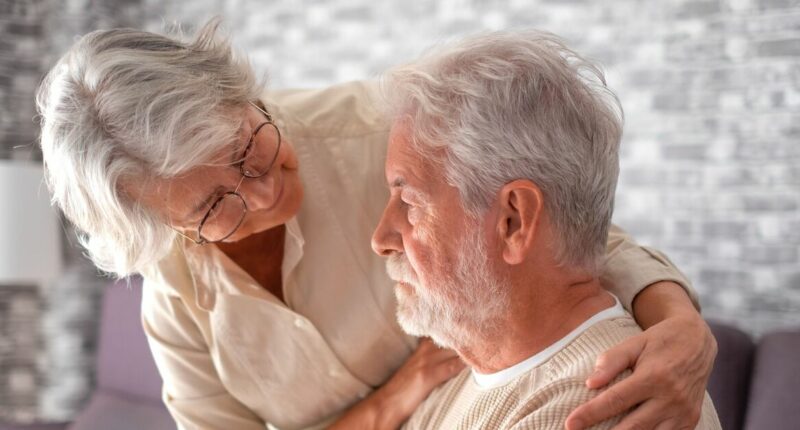Share this @internewscast.com
It’s estimated that over a million people are living with dementia currently, with this number anticipated to surpass 1.4 million by 2040 according to the Alzheimer’s Society. As the world’s population ages and longevity increases, dementia has emerged as one of the most pressing health and care challenges globally.
Dementia predominantly affects the elderly. After reaching 65, the risk of developing dementia approximately doubles every five years, though it is not an unavoidable part of aging. Some individuals might experience dementia earlier in life, bringing unique challenges for the affected person, their caregiver, and their family.
Therefore, recognizing signs of dementia early is crucial, as an early diagnosis allows for appropriate care, increasing the chance for the individual to preserve their cognitive abilities for a longer period.
A diagnosis can ensure individuals with dementia receive suitable treatment and support. It also aids them and their loved ones in planning for the future.
To assist, the NHS has turned to social media to highlight four early signs of dementia that individuals should be aware of, as this awareness can lead to accessing treatments more promptly for those affected.
“Typical early signs of dementia,” NHS mentioned in their Instagram post, emphasizing that different types of dementia might impact individuals differently, thus they might encounter various symptoms.
They then went on to share four common signs of early dementia to look out for, as it could help the person in question get diagnosed early.
1. Memory loss or difficulty concentrating
One of the most common symptoms most people will be aware of is memory loss. This can present in different ways, including frequently forgetting recent information or events, or finding it difficult to concentrate on tasks and conversations.
Memory loss, also known as amnesia, can be annoying if it happens occasionally. However, if it is affecting your daily life – or it is worrying you or someone you know – you should get help from a GP. Frequent memory loss isn’t always a sign of dementia, but it’s important to find out the cause.
2. Finding everyday tasks more difficult
People with dementia may start to find it difficult to carry out familiar every day tasks, such as finding the correct change when shopping, planning meals, or gatting themselves washed and dressed.
As dementia affects a person’s mental abilities, they may also find planning. organising and day-to-day problem-solving difficult. They may also lose interest in things they once enjoyed.
These symptoms of early dementia might interfere with the sufferer’s ability to take care of themselves and live independently.
3. Struggling with conversations
People with early dementia may struggle to follow along in conversations. They might find themselves repeating stories or questions, losing the thread of a conversation, and becoming confused about time and place. They may find it hard to stay on topic or struggle to complete sentences.
They might also find it difficult to find the right words or use words incorrectly, such as calling an object by the wrong name.
People with early dementia might also take longer to process information and formulate a reply, or show confusion about what was just said.
4. Confusion or mood swings
Fianlly, the NHS explained that someone with dementia might find themselves losing track of the day, or being confused about where they are, what time it is.
This confusion can also turn into mood swings, as the NHS also reports that someone with dementia might have aspects of their personality change, and they may lose parts of their empathy.
The NHS went on to explain in the caption of their Instagram post: “These symptoms can show up differently in everyone, depending on which part of the brain is damaged. However, there are some common early symptoms that may appear some time before a diagnosis of dementia.”
Having any of these symptoms does not mean that you have early dementia. But if you notice these signs in yourself or someone else, it is important to book an appointment with your GP, or urging the other person to book an appointment, and maybe suggest that you go with them.












